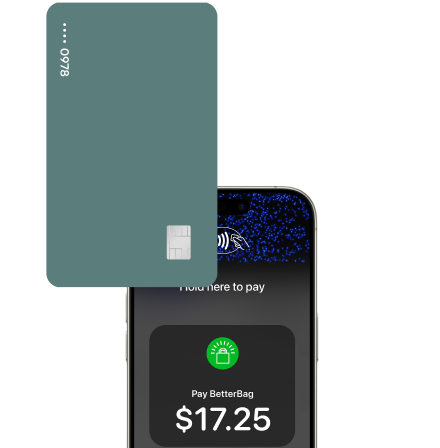Looking closely at your monthly merchant statement, you may have encountered “assessment fees.” Since there are multiple types, you may see them labeled as “Visa Assessment Fee,” “MasterCard Assessment Fee,” or “Dues and Assessments.” But what are they? In this article, we’ll walk you through the ins and outs of credit card assessment fees. By the end, you’ll be a pro. Let’s dive in.
Key Takeaways
- Credit card assessment fees are card brand fees that cover the costs of running transactions through the card networks.
- Card associations supply the bank-to-bank networks that allow transactions between you and your customers.
- Credit card assessment fees work differently with different pricing structures.
What are Credit Card Assessment Fees?
Credit card assessment fees are card brand fees (fees assessed by Visa, MasterCard, and Discover directly). Think of them as a category of fees rather than a specific fee. More commonly, you’ll see these as “association fees” instead of “assessment fees.”
These association/assessment fees cover the costs of running transactions through the card networks. Depending on the circumstances, your business could be subject to dozens of fees under this category. Some get triggered by specific actions, such as transactions run on international cards, and others get assessed on every transaction and/or dollar run through a particular brand (every Visa transaction and dollar processed is subject to fees, for example).
The important thing to know is that these fees are assessed directly by the card brands themselves and get passed to you by your payment processor. They are legitimate fees that you’ll have to pay regardless of where you open a merchant account (unless your fees are all bundled into a single flat rate [1] PaymentCloud. ”Flat Rate Credit Card Processing: Is It Right For You?“ Accessed February 23, 2024 . In this case, you still pay them, but they don’t show up as a line item on your statement).
Understanding Card Associations
You know the names Visa, MasterCard, and Discover, but what are these card association businesses? They often don’t issue the debit or credit cards that bear their label. Instead, the banks do that. So, what do these companies add to the mix?
The card associations/networks you’re most familiar with are the three we’ve mentioned: Visa, MasterCard, and Discover. But others, including American Express, Maestro, NYCE, STAR, PULSE, and UnionPay, are popular in the US and many countries worldwide.
These companies supply the bank-to-bank networks that allow transactions between you and your customers. They play an integral role in facilitating the movement of money by providing the back-end infrastructure needed to process and physically move currency worldwide. Think of these networks like telephone wires/lines across the country. These allow us to communicate through a telephone network that carries sound and information to a party in another location.
Assessment Fees vs Interchange Fees
Other types of fees you may see on your statement are called “interchange fees.” What are interchange fees, and how do they compare to assessment fees?
As we just touched on, the assessment fees are the fees assessed by card brands/networks. Interchange fees are handed down by the card-issuing banks, meaning the bank that issued the debit or credit card used for the purchase collects the interchange fees for their role in the transaction.
Like assessment fees, interchange fees are a category of fees instead of a singular fee. When comparing the total of the two, you may notice that the total cost of your assessment fees averages around 50-60% of the total interchange fees. Combined, the two make up roughly 70-90% of the total fees you pay each month for credit card processing.
Major Credit Card Brand Assessment Fees
As you may recall, there are a lot of card brands. Each reserves the right to charge unique fees for using their respective networks. In this section, we’ll break down fees from the three most common card brands and examine when you’ll most likely encounter them.
Visa
Here’s a table of Visa’s association/assessment fee schedule:
| Name of Fee | Fee Amount and Reason for Assessment |
|---|---|
| Credit Assessment Fee | $0.0195 per transaction + 0.14% assessed on all Visa credit card volume |
| Debit Assessment Fee | $0.0155 per transaction + 0.13% assessed on all Visa debit card volume |
| FANF Fee | A flat fee dependent on the overall Visa processing volume each month |
| Base II System File Fee | $0.0018 per transaction fee charged on every authorized transaction that gets submitted for settlement |
| Transaction Integrity Fee | $0.10 per transaction is a penalty assessed when a Visa transaction doesn’t meet CPS requirements |
| Misuse of Authorization Fee | $0.09 per transaction is a penalty assessed when authorized Visa transactions do not match a settled sale (failed tip adjustments, for example) |
| International Service Assessment (ISA) Fee | 0.80% per transaction for US-based merchants who accept payments in USD from a foreign-issued Visa debit or credit card |
| International Acquirer Fee | 0.45% per transaction for US-based merchants who accept payments in USD from a foreign-issued Visa debit or credit card – if the ISA fee above applies, this one almost invariably does, too. |
| Zero Dollar Verification Fee | $0.025 per Visa transaction if you verify a card’s AVS or CVV but don’t process a sale with it |
| Zero Floor Limit Fee | $0.20 per Visa transaction if a settled transaction has no corresponding authorization |
Mastercard
Here’s a table of MasterCard’s association/assessment fee schedule:
| Name of Fee | Fee Amount and Reason for Assessment |
|---|---|
| Credit and Debit Assessment Fees (For transactions under $1,000) | $0.0195 per MasterCard transaction + 0.1275% of the transaction amount |
| Credit and Debit Assessment Fees (For transactions over $1,000) | $0.0195 per MasterCard transaction + 0.1475% of the transaction amount |
| Processing Integrity Fee | $0.055 per MasterCard transaction for Card-Present (CP) sales settled > 24 hours after authorization, and Card-Not-Present (CNP) transactions settled > 72 hours after authorization |
| Digital Enablement Fee | 0.01% of the total volume for CNP MasterCard transactions on signature debit cards, consumer credit cards, and commercial cards |
| Processing Integrity Fee Detail Reporting | $0.012 per transaction applies to an authorization that requires a processing integrity fee (the above fee) |
| Card Validation Code Fee | $0.0025 for each MasterCard transaction that includes a CVV, CV2, or CCV code |
| AVS Fee for Card-Present Transactions | $0.005 for Address Verification Services for a CP MasterCard transaction |
| AVS Fee Card-Not-Present (CNP) Transactions | $0.005 for Address Verification Services for a CP MasterCard transaction |
| Account Status Inquiry Fee | $0.025 per MasterCard transaction that verifies AVS or CCV details without authorizing a final sale |
| Cross Border Assessment Fee (Domestic) | 0.60% surcharge for US-based merchants who accept payments in USD from a foreign-issued MasterCard debit or credit card |
| Final Authorization Integrity Fee | 0.25% of total MasterCard volume ($0.04 minimum) for an error or discrepancy between the authorization and finalized transaction (too long to settle, incorrect currency, etc.) |
| Pre-Authorization Integrity Fee | $0.045 for pre-authorizing a MasterCard card without reversing it or clearing it in 30 days |
| Undefined Authorization Integrity Fee | $0.045 for an undefined authorization on a MasterCard card that is not reversed or cleared within seven days |
Discover
Here’s a table of Discover’s association/assessment fee schedule:
| Name of Fee | Fee Amount and Reason for Assessment |
|---|---|
| Credit and Debit Assessment Fee | $0.0195 per transaction + 0.13% of all Discover card volume |
| International Service Fee | 0.80% surcharge for US-based merchants who accept payments in USD from a foreign-issued Discover debit or credit card |
| International Processing Fee | 0.55% international fee for payments in dollars from Discover cards issued outside the United States (it applies in the same circumstances as above unless you offer the ability for the customer to pay in their native currency and they accept that option) |
| Network Authorization Fee | $0.025 per transaction when an authorized Discover transaction is submitted for settlement |
American Express
Here’s a table of American Express’ association/assessment fee schedule:
| Name of Fee | Fee Amount and Reason for Assessment |
|---|---|
| Credit and Debit Assessment Fee | A flat 0.15% of total American Express card volume |
| International Assessment Fee | 0.40% surcharge for US-based merchants who accept payments in USD from a foreign-issued American Express debit or credit card |
| Card-Not-Present (CNP) Surcharge | 0.30% surcharge on total CNP American Express volume |
| Noncompliance Fee | 0.75% of total volume that does not comply with American Express protocols, such as a sale that is not settled during the seven days after authorization |
What are International Service Assessment Fees?
International service assessment fees are fees assessed on transactions paid by a debit or credit card issued outside of the US that is used for a transaction inside the US.
How could this happen? If, for example, you live in a touristy area, live near the Canadian or Mexican border, or happen to have an out-of-area visitor who shops at your store, there is a higher chance that a percentage of your customers will come with a debit or credit card issued outside of the US. Similarly, if you offer your services or products worldwide (through an eCommerce store), you will also likely receive international assessment fees for accommodating those payments.
How do Assessment Fees Work With Different Pricing Structures?
Depending on your pricing structure, you may or may not see “assessment fees” on your merchant statement. For example, flat rate and tiered pricing structures are more likely to bundle these fees with your flat rate (meaning you’re still paying them, but you won’t see them displayed on your statement). Interchange plus pricing, for example, is much more transparent, so you’ll see each line item broken out individually with this structure.
Tips for Keeping On Top of Processing Fees
The best way to stay on top of your processing fees is to do what you’re already doing: look at your monthly statement, ask questions, learn about the fees you’re seeing, and contact your credit card processor with any questions. They can help explain what you’re seeing in your statement.
To understand the total percentage you’re paying each month, calculate your effective rate (total amount of fees divided by total debit and credit card volume, multiplied by 100). This will help you find patterns and discrepancies a little faster.
Final Thoughts
Accepting credit cards comes with many fees, and assessment fees are no exception. Association/assessment fees get charged by the card brands directly and offer a lot of insight into how good your transaction processing habits are, the clientele you serve, and how much volume you run by card type, if you know what you’re looking for. You can optimize your costs by partnering with a trustworthy payment processor and building the cost of processing into your prices.


























